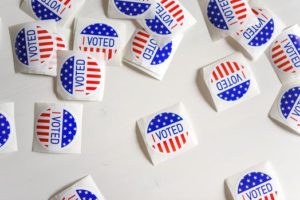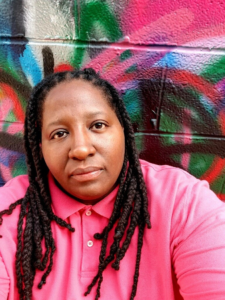By: Dion Cartwright, Director of Equitable Initiatives and Leadership Development
This message originally appeared in the PLACES Connection Newsletter, which goes to the Alumni of the PLACES fellowship.
 Prior to (and following) the Voting Rights Act of 1965, Black people were often harassed, intimidated and threatened when they would try to register to vote. Voter literacy tests and many other barriers were used to prevent Black people from being able to exercise their civil rights. There were policies in place that would give local jurisdictions the authority to restrict equal rights under the law. Native Americans experienced similar challenges and were often forced to assimilate to European culture before being given their rights to vote. The Latinx community was also negatively impacted by similar barriers to voting. Non-English-speaking voters were also often shut out of voting because of lack of accessibility to translated voting materials and other important legislation.
Prior to (and following) the Voting Rights Act of 1965, Black people were often harassed, intimidated and threatened when they would try to register to vote. Voter literacy tests and many other barriers were used to prevent Black people from being able to exercise their civil rights. There were policies in place that would give local jurisdictions the authority to restrict equal rights under the law. Native Americans experienced similar challenges and were often forced to assimilate to European culture before being given their rights to vote. The Latinx community was also negatively impacted by similar barriers to voting. Non-English-speaking voters were also often shut out of voting because of lack of accessibility to translated voting materials and other important legislation.
During the 1960s, there were many youth-led cultural and political movements that erupted as a result of poverty, police violence, the murder of Black activists, voter suppression, the fight for reproductive rights, LGBTQ+ rights, and other social issues impacting Black, Latinx, Indigenous and other marginalized communities and peoples. However, in spite of the constant barriers and legislative loopholes/abuses used to suppress the vote or to prevent changes to discriminatory legislation, people stayed resilient. People continued to fight, march and spend entire days in long lines to exercise their rights.
This sounds familiar, right? Today, voting rights protections continue to be under attack. We’ve seen voter suppression increase and continued attempts at suppressing the votes of Black, Latinx, Indigenous and other marginalized communities and peoples. We have seen police violence that has sparked nation-wide uprisings, solidarity marches in the streets and a renewed fight against the political and criminal systems of oppression that perpetuate discrimination and racism.
I share this to remind each of us that the challenges we face today aren’t new. The discriminatory practices targeting marginalized people have always been used to discourage engagement in the political, social and economic infrastructure of the U.S. Although the racist and dehumanizing policies of the current administration seem unprecedented, we know they are not. The system is working exactly as it was designed to — to attack the civil and human rights of all people, but specifically of those of Black, Latinx, Indigenous and other marginalized peoples.
As we prepare for the upcoming election results, I want us all within our PLACES network to keep some very important perspective at hand: no matter what the outcome of November 3rd, we must remember that our work has the ability to create the change we are voting for. We are the change makers.
What does that mean? It means we must invest in the capacity building of the communities most impacted by the political, social and economic policies that have failed to protect our most vulnerable and disenfranchised. As funders, we have an obligation to fight to deconstruct the unjust systems of oppression that hurt and steal from our communities, especially those of color. We must ask ourselves, “How am I contributing to these unjust systems and what power am I willing to give up or challenge in order to see true justice and liberation for all come to fruition?” Our future is not dependent upon the results of this election. It is dependent on our resiliency as we face the gatekeepers of change.
Find hope in knowing that the work you do matters. Find hope in your refusal to let the obstacles we face today daunt you. Find hope in knowing that your unwillingness to compromise who you are, even while under immeasurable stress, violence and grief, represents you fighting for yourself and all who came before you and those that will come after you.
We are (thankfully) not politicians, but we are the advocates and sellers of hope in our sector and communities — and by doing so we are the brick layers of justice and liberation. Keep going — the road we have been fighting for is already being built by you.
Note: The Funders Network’s President and CEO Pat Smith is among the more than 100 philanthropic leaders calling for leaders at all levels of government and across all sectors to ensure a free, fair, and safe election. The letter, which includes signatures from leaders representing a range of ideological viewpoints, presses for safe elections with all votes tallied and the result respected peacefully. The letter was circulated by the Democracy Funders Network, a coalition of grant makers, and Philanthropy for Active Civic Engagement. It was published Oct. 19 on Medium and was also featured in a recent story by the
Chronicle of Philanthropy.
You can read more here.
 About The Author:
About The Author:
Dion Cartwright is the Director of Equitable Initiatives and Leadership Development at The Funders Network. She is also the lead staff for the PLACES Fellowship.
